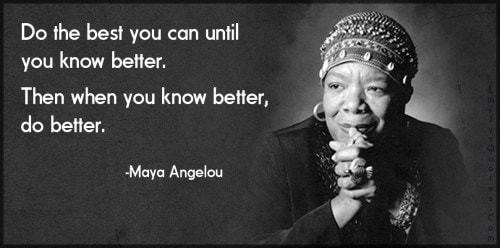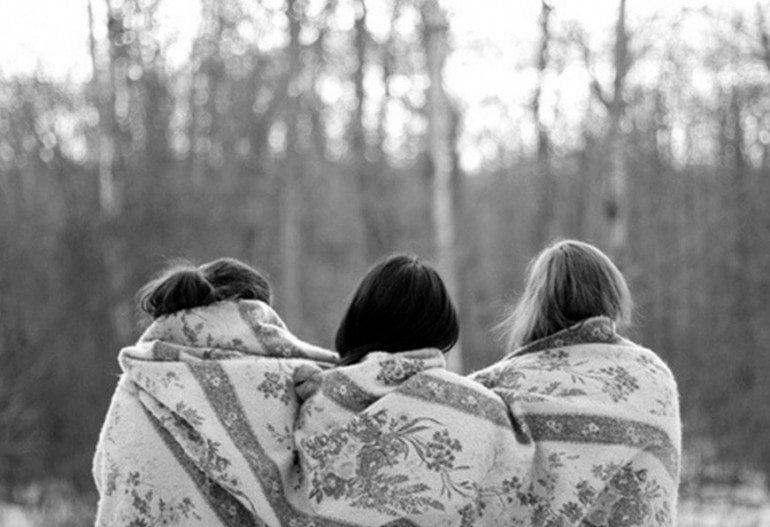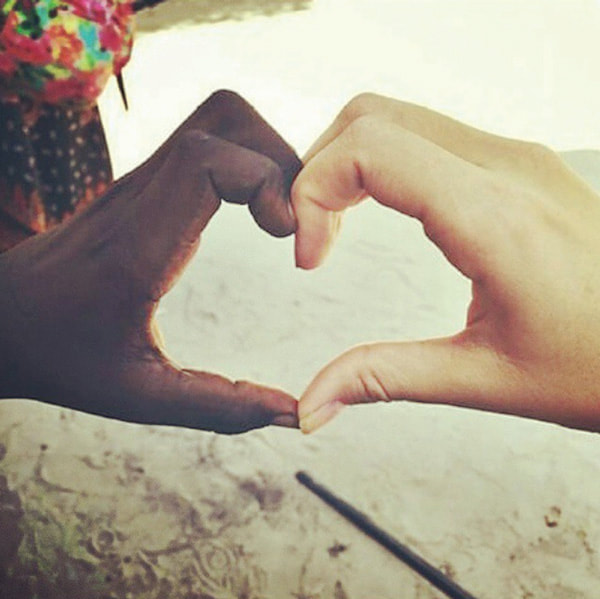 Wow, there is so much to say, and yet I don't know that I know what to say. And, as Dave can tell you, I am typically not at a loss for words. In our Episcopal church, each week, we say a litany called "Words for the Wordless". One of the last lines says, "We believe questions are more valuable than answers". I was working with some administrators the other day on how they talk with their teachers after an observation. I was sharing with them that many teachers, when talked WITH about their observation versus being talked TO about their observations, say they have never before gotten so much chance to share their thoughts. These same teachers will say things like, "This conversation really made me think." Isn't that exactly what we want? So, I shared with the administrators what we say in church----certainly not to proselytize---but to say how valuable the questioning process can be. After the death of George Floyd and the subsequent protests, demonstrations, and widespread violence, I have had the opportunity to talk with some of my dear friends who happen to be black. Scratch that---I took the opportunity and made time to talk with some of my black friends. What's the difference? I've always had the opportunity to talk with my friends who have been margianilized because of their race, color or religion. But this time, I took advantage of asking some questions. I asked questions about whether they had felt overt or covert racism in their lives. I heard stories about feeling watched when they were the only black person in a room or class of white people. I heard a story from a black teacher named Gerry who was new to a school. On the "welcome back" day, the principal stood at the door as all the teachers entered and shook hands with every white teacher. When Gerry got to the principal, the principal held up his hand in an effort to "high-five" him. Gerry held out his hand to get a handshake, just as was done for every other teacher. Did the principal overtly or consciously mean to be racist? I would guess not. But Gerry remembers this experience from years and years ago. One of my friends told me that, although she grew up quite "privileged", she still experienced racism in various "shades"----people calling her the "n" word in school, etc. I was appalled, and yet I remember being a principal in a school that was mostly filled with white children and a handful of Hispanic and Black children. The first time I heard a student tell me they had been called the "n" word, I was livid. After all, we had (for years) worked on the character traits of respect, kindness, and courage. Why would any of the students in our school say that word in the first place, much less to call another one of our "family" that horrific name? When I asked the offender, he said, "I didn't think it was that big of a deal. My dad calls the people he works with n________s". It reminded me of that song from South Pacific, "You've Got to Be Carefully Taught", in which the lyrics say: "You've got to be taught to hate and fear You've got to be taught from year to year It's got to be drummed in your dear little ear You've got to be carefully taught You've got to be taught to be afraid Of people whose eyes are oddly made And people whose skin is a diff'rent shade You've got to be carefully taught You've got to be taught before it's too late Before you are six or seven or eight To hate all the people your relatives hate You've got to be carefully taught" I get chills every time I read those lyrics, as I totally believe this is true. How would little ones ever know to show hatred for anyone whose skin color is different if they hadn't been carefully taught? I was not taught that way, as growing up in San Antonio, the skin colors of all of us were so varied, who would have been the "target" audience? But I still have black friends that say, "You may feel different from all your Jewish friends because you are Episcopalian, but people do not pre-judge you when you walk in a room since you don't have 'Episcopalian' written across your forehead." I know that to be true, as well. When someone is black, their very skin color is announced the moment they walk in a room. So, what am I called to do? I think the first thing I was called to do was exactly what I just talked about---asking questions of my friends who are black and truly listening to their experiences. I also think I am called to examine my own "white privilege" even though I have always shared that I grew up most of my life with a single mother who worked super long hours as a ward clerk at a hospital. I felt upset when she was too exhausted at night to come to most of my choir concerts or when she didn't have the extra $7 to allow me to go to an end-of-year field trip/party when I was in middle school. But really?? Is that the same as being judged from the second you walk into a store and being followed around by store employees simply because of your color? I think not. I still have a long way to go to understand my own views on these issues, and I ask God each morning to direct my thinking. However, I know for certain that I will only grow if I am prepared to feel a bit of discomfort. And, most of all, I have to honestly believe that questions are more valuable than answers. Happy Communicating, Shelly
0 Comments
 In one of the classes I'm teaching for Educational Leadership at Grand Canyon University, I posed a question about who the students would or could talk to if they found themselves in a position in which they didn't know what to do or how to handle a particular school situation. One of my students spoke of the "tribe" she uses to bounce ideas off of. Several of us have posted responses to her practice. I am so blessed to have several tribes with whom I use for different situations in life. Professional In presenting to teachers, school leaders, and university professionals all over the world, I have been so happy to find people with whom I can co-present, people who I go to for new ideas on presenting strategies, administrators who network with me and continue to become true friends and comrades in this education journey. I tell new teachers and administrators to "stick with the winners" and only go to those people for advice. Some people in education (any profession, also, of course) can get burnt out and share their burnt out feelings. Who needs that? Spiritual When faced with a situation in which I'm feeling resentful, discouraged, or troubled by worry, I have a tribe of spiritual advisors and fellow travelers who are still making their way through situations that used to baffle me. We can discuss our journeys, give each other advice and not be offended in the least if the person decides to go a different direction (after all, it is not my business to "grade" someone on the choices they make, only to be there to support). Lifetime friends Dave makes fun of me because I tell so many people "I love you". You know why I do that? Because I love so many people. I know better than to share every single secret in my life with every single person, but I still love and cherish the relationships I have with so many friends from so many different seasons of my life. Let me preface this by saying I went to 8 different schools in my 12 years of K-12 schooling. I still have managed to stay friends with Tricia, my bestie from 4th - 6th grade. I also am still EXTREMELY close to my rock and cornerstone best friend from high school, Denise. She and her family even vacation with Dave and me once every other year to Cabo San Lucas. Robin and Kelly were my best friends in college, we were in each others' weddings, and we now get together at least twice a year (husbands are allowed to come for the summer trip). We just finished with one of those "you can come, too, husbands, but beware----there will be loads of laughter that turns to crying between the three girls". The guys have simply resigned themselves to the notion that you can't contain this joy, so they no longer try. All of these friends are near and dear to me and are unique in each way we value our friendship. What about you? Who is in your tribe? And for what reasons do they stay there? Happy Communicating (in and out of your tribe), Shelly  In a total Godwink and collision of events, the question posed to my Education Law students this week was the following: You are an assistant principal at a high school where less than 10% of the students identify themselves as non-white. An African American male student is frequently sent to your office by different teachers because of disruptive and non-compliant behaviors. You have found him to be a likeable student, but he has shared with you that he feels his teachers do not understand or like him. You have a good relationship with Jason. However, each time he is sent to your office, you wonder if other issues need to be addressed. You have set up a conference with his parents. During the conference, they point out to you that on the campus only 2 out of 90 teachers are non-white. They further state that the posters and art displayed on campus as well as the school’s website do not depict students “who look like our child.” At this point, how do you address the concerns with the parents? What other actions do you need to take as the assistant principal? All of my Education Law students had various thoughtful responses. Erin Bueche (yes, she gave me permission to use her name) wrote something I felt deeply compelled to share with people who read my blog. Please let me know what you think. I will certainly pass it along to Erin. I think it is about time someone stepped forward to recognize that the art around the school is outdated and not diverse! Let's collaboratively work together and change this! See, I grew up in a rather urban school. I am a white girl who grew up playing basketball with all my black friends. I brought my black friends home; they taught me to double dutch, and we never saw a difference in skin color. I was 5'7 in the 6th grade, and I learned to play ball like a young Michael Jordan... OK now that is a hyperbole, but what I am saying here, is that I would thank the parents for scheduling a time to come in and talk. I am going to stand with them, and it is about time I get put in my place about the school decorations. Perhaps those small changes can make Jason feel welcome and excited to learn, and perhaps his behaviors may change. Additionally, why is Jason's behavior so bad? Why is he always getting sent to the office? I must see the data on this student regardless of color. I want to ask Jason a few questions with a counselor and his parents if they allow the counselor, and get to know Jason and his family better. Is there something at home that is bothering him and it affects him at school? Does he struggle with a topic/ certain teacher? Have there been any changes in his life that cause him to rebel? I believe in a social-emotional connection with my students. Building trust with them, even at the high school level, is important. I would ask the parents, "Please tell me more about how you feel about the people at this school not looking like your child." To what are they referring? Once I get the answer (I am certain I will hear about racial or ethnic backgrounds), I will remind the parents that staff and students cannot discriminate against one another for color:
There was a time in my elementary school years that I will not forget. Every student created a ceramic tile in art class that was going to be cemented to a beautiful mosaic art sculpture outside of the library for years to come. Each one of us students made a tile that represented who we were and they all randomly got cemented to the sculpture over spring break. When we returned, we were all amazed at the unity in that design! My tile got placed next to my two black best friends, Alisha and Raven. We are friends to this day, and just so, that sculpture still stands. I loved her response for so many reasons. I am currently questioning my own inadvertent denial of white privilege, white silence, assuming good intentions are enough and so much more. I hope all of my white friends and family are doing the same. For all my black friends and family, I extend an invitation --- an invitation to tell me more about your own story. I truly want to listen to you talk about times you have been scared when, even as a young girl, I would have never been scared because I must have subconsciously believed my skin color provided some "Teflon". I am making it a point to DO something instead of just thinking about doing something. What are you doing to either show your outrage or to help ensure that one day there is no need for outrage. Loving all of you and happy communicating to all, Shelly |
Shelly ArnesonCategories |


 RSS Feed
RSS Feed